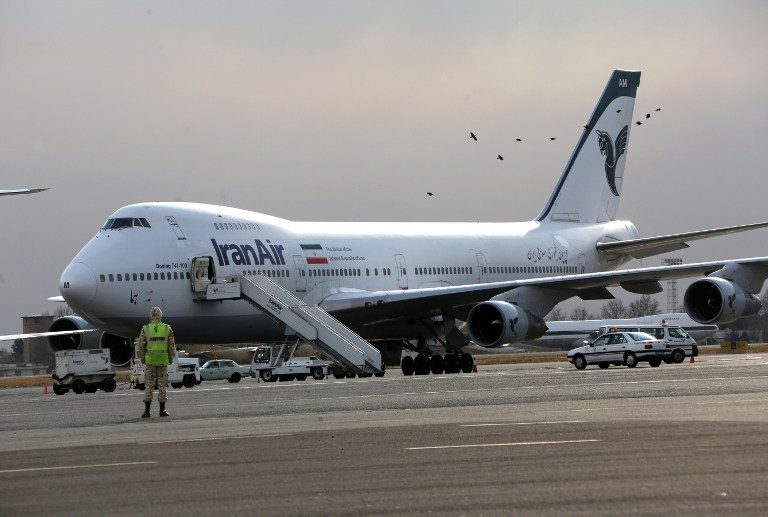SUMMARY
This is AI generated summarization, which may have errors. For context, always refer to the full article.

NEW YORK, USA (3rd UPDATE) – US aerospace giant Boeing and Iran Air confirmed Tuesday, June 21, a tentative deal for the sale of passenger planes, in what could prove a landmark for easing in the difficult US-Iran relationship.
The deal, valued as much as $25 billion, would be the largest between a US business and Iran since the 1979 Islamic revolution.
Boeing said it had reached a preliminary agreement with the state-owned carrier as it seeks to check the boxes in a multi-step process overseen at every stage by US regulators.
“Boeing confirms the signing of a Memorandum of Agreement (MOA) with Iran Air expressing the airline’s intent to purchase Boeing commercial passenger airplanes,” the Chicago-based company said in an email to AFP.
Boeing said it “will continue to follow the lead of the US government with regards to working with Iran’s airlines, and any and all contracts with Iran’s airlines will be contingent upon US government approval.”
Earlier Tuesday, Iran Air said it had struck an initial deal to buy Boeing 737 and 777 airliners, subject to US government approval.
The order could be valued at $25 billion, a person close to the situation told AFP.
Despite the significant progress, analysts noted that there are still hurdles to clear before Boeing seals the transaction.
Iran had been an international pariah prior to the Iran nuclear deal reached in 2015 and the US-Iran relationship remains one of mutual distrust, with the US maintaining extensive sanctions on Iran.
Boeing archrival Airbus in January reached a deal to sell Iran 118 aircraft worth about $25 billion. French officials in April said the transaction was in the final stages of winning approval from the US Office of Foreign Assets Control, a key hurdle, because some of the aircraft components are made in the US. The deal still has not been finalized.
In Boeing’s case, there are also questions about how Iran Air will pay for the planes given that US banks are still barred from doing business in Iran and from processing dollar-based transactions for Iran.
“If the deal can be consummated in euros, I think it will be a slam dunk,” said Cliff Kupchan, an analyst at Eurasia Group.
Kupchan said many Iran-watchers have been surprised by the reluctance of risk-adverse European banks to jump into Iran.
“The payment needs to be ironed out by banking experts,” he said.
It is also not certain that Iran’s supreme leader Ayatollah Ali Khamenei will approve the purchase.
“Suppose we modernize our air fleet. Okay, it’s a very important and necessary move. But is it the priority?” Khamenei said in a speech last week.
Upgrading aging fleet
The agreement was signed in the past month after a visit by Boeing representatives to Iran and several rounds of negotiations, Iran Air said on its website.
Iran’s civil aviation authority says it needs 400 to 500 aircraft over the next decade to modernize its fleet.
Kupchan said international negotiators explicitly permitted commercial aircraft sales to Iran due to the decrepit nature of the Iranian fleet.
He predicted the Boeing deal would ultimately be completed due in part to the importance of the Iran nuclear deal to President Barack Obama’s foreign policy legacy.
“My best judgment is that broadly speaking, this deal will move forward,” he said. “Fixes will be found.”
Investment bank Jefferies also cited the Obama administration’s support as it noted the progress on the deal.
“While some politicians may take issue with this sale, it seems the administration is supportive of the transaction and that this should be sufficient to permit it to go forward despite some complaints,” Jefferies said.
“The transaction may provide a framework for other industries seeking to expand their business in Iran, so it may generate support from leaders outside of the aerospace market as well.” – Rappler.com
Add a comment
How does this make you feel?
There are no comments yet. Add your comment to start the conversation.